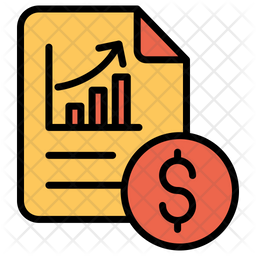
AI in Fashion Market: By Component (Solutions, Services and Support and Maintenance) By Deployment Mode (Cloud and On-Premises) By Application (Product Recommendation, Product Search and Discovery, Creative Designing and Trend Forecasting, Supply Chain Management and Demand Planning, Customer Relationship Management, Virtual Assistant and Others) By Category (Apparel, Footwear, Beauty and Cosmetics, Accessories, Watches and Jewelry) By End Users (Fashion Stores and Fashion Designers) By Region-Global Industry Analytics, Comprehensive Analysis And Forecast, 2020 – 2029.
- TBI628570
- July 24, 2020
- Global
- 132 pages
- SAC Insights
Abstract
There is no doubt that Artificial Intelligence AI has changed the way business is done. There are a myriad of ways in which AI has helped the fashion business style from the use of predictive analytics for industry and computer vision in recognition of product features. Just as Netflix, Amazon or YouTube can suggest similar shows or products, the same thing can be done by AI in the fashion industry. With growing popularity of e-commerce, more consumer data is being tracked than ever. Most popular fashion websites are able to record browsing habits of their buyers, thereby recommending similar items based on colour, style or layout.
The AI in fashion market shows a significant demand owing to rising influence of social media on fashion industry. Rising demand for a personalized experience is another factor driving the demand for AI in fashion business. Moreover, recognizing future fashion trends by tracking customers shopping patterns and drastic growth in fashion retail are other two key factors boosting the adopting of artificial intelligence in fashion market. However, tie-ups with cultural differentiation and a huge traffic on social media may pose a challenge to the market.
On the basis of component, AI in fashion market is fragmented into solution and services. Due to a higher adoption rate, the solution segment outperforms the services segment and is expected to record higher growth in the future. Fashion retailers are moving more and more towards advanced technologies that can streamline their business processes and help attract new customers. In addition, it has become challenging for the organizations to identify current trends through different social media platforms and cater to the customer's every need. Consequently, fashion retailers and brands are gradually adopting AI-based solutions, including platform and software tools like SDKs, APIs, and ML models.
The deployment segment is segmented into cloud and on-premises. With improvements in integration and scalability coupled with ease of deployment, the cloud-based deployment mode is anticipated to drive the adoption of cloud-based AI solutions in fashion business; While advantages of data privacy and security drives the demand for on-premises AI solutions in fashion industry.
The global AI in fashion market covers five major geographic regions, namely North America, Asia Pacific (APAC), Europe, Middle East & Africa (MEA), and Latin America. North America is expected to have the largest market size during the forecast period due to the availability of advanced technologies. The APAC region is showing rapid growth in the AI fashion market due to various reasons such as growing adoption of social media and expanding local businesses and government initiatives focused on developments in AI technology. Tech giant investments are also expected to fuel the growth of AI-based solutions worldwide.
The AI in fashion market comprises key solution providers, such as Microsoft, IBM, Google, Facebook, Adobe, AWS, SAP, Oracle, Huawei, Vue.ai, Catchoom, Heuritech, FINDMINE, Intelistyle, Wide Eyes, Lily AI, and Pttrns.ai among others
The report segments the AI in Fashion market as follows:
Global AI in Fashion Market: Component Segment Analysis
Solutions
Services
Support and Maintenance
Global AI in Fashion Market: Deployment Mode Segment Analysis
Cloud
On-Premises
Global AI in Fashion Market: Application Segment Analysis
Product Recommendation
Product Search and Discovery
Creative Designing and Trend Forecasting
Supply Chain Management and Demand Planning
Customer Relationship Management
Virtual Assistant
Others
Global AI in Fashion Market: Category Segment Analysis
Apparel
Footwear
Beauty and Cosmetics
Accessories
Watches and Jewelry
Global AI in Fashion Market: End Users Segment Analysis
Fashion Stores
Fashion Designers
Global AI in Fashion Market: Regional Segment Analysis
North America
U.S.
Europe
UK
France
Germany
Asia Pacific
China
Japan
India
Latin America
Brazil
Middle East and Africa
Table of Contents
Request Table Of Content
Click To Request Sample
| read more...



















